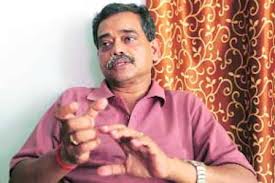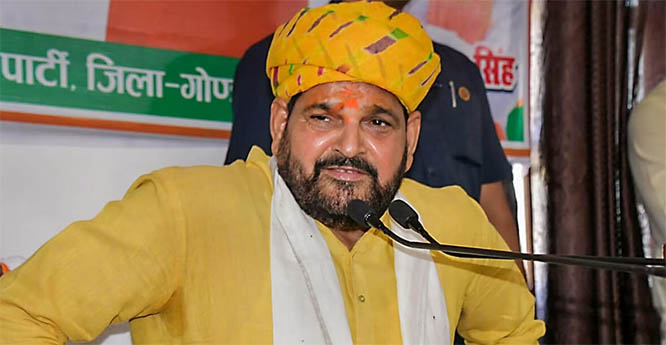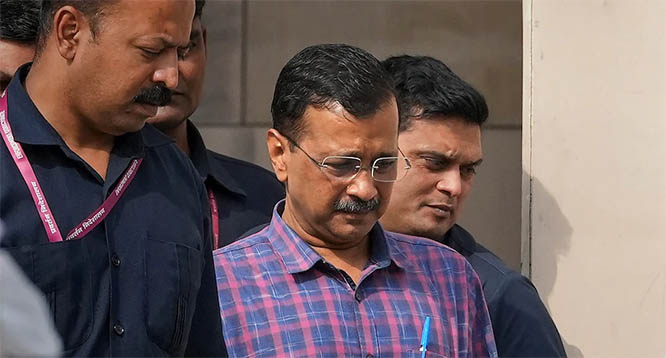
Kolkata, December 27: President Pranab Mukherjee's son Abhijit Mukherjee stoked a major controversy by describing women participating in Delhi protests against gang rape of a student as 'highly dented and painted', triggering angry backlash.
Abhijit had said, "Walking in candlelight processions, going to discotheques, we have also led student life, we have been students. I well know what the character of a student should be."
"Those who are coming in the name of students in the rallies, sundori, sundori mahila (beautiful women), are highly dented and painted," Abhijit Mukherjee, an MP from Jangipur seat which the President had vacated before his election, told a vernacular news channel.
"Giving interviews in TV and showing off their children. I wonder whether they are students at all," he said, adding, "what's basically happening in Delhi is something like pink revolution, which has very little connection with ground realities."
As his "insensitive" remarks sparked outrage with even his sister Sharmistha expressing "utter shock and anguish" and apologising on his behalf, Abhijit "withdrew" his comments and said they were not meant to hurt "any particular section or any particular sentiment".
"I express my utter shock and anguish. I really apologise to every women, man and every sensitive person in this country... I am utterly shocked and only thing I can say is that I really apologise on his behalf ... I am quite surprised with what my brother said," Sharmistha said.
Asked whether Abhijit should apologise for his words, she said, "I completely agree. He should immediately apologise.
"Not only as a President's son, but as any sensitive man, he should not have made this kind of statement. Forget about being a political leader, it shows a certain degree of insensitivity... My family is not like that," she said.
On whether her father would be embarrassed with Abhijit's remarks, Sharmistha said, "I am sure he will be. I can say that he also shares my view.... One thing is for sure that he (Pranab) does not agree with his (Abhijit) views. I am sure. He (Pranab) has made a statement and during our personal interactions, he expressed his anguish."
Soon after Abhijit said, "I apologise to all the people whose sentiments who got hurt because of these sentences and these sentences are withdrawn" but the women activists and political leaders were unimpressed.
CPI(M) leader Brinda Karat said political leaders cannot be allowed to get away with a mere apology after making such "outrageous and highly condemnable" remarks "demeaning women" and there should be a code of conduct for elected representatives.
Jaya Jaitley said the women will not be "cowed down" by such comments and it will only add strength to the movement. She said the comments have revealed the true mindset of the people.
"If it is what he has said, it is truly regrettable. I think that is so far away from reality. As a representative of the people, obviously this is an insensitive statement... That is why the suffering is increasing," former IPS officer and social activist Kiran Bedi said.
Terming the remarks as unfortunate, Smriti Irani, chief of BJP' women wing, said it was especially distressing as they had come from the President's son and that too at a "challenging time" when not only women but men have come out on streets demanding justice and safer environment for women.
"I think this is exactly the kind of mindset that the youths are fighting against," she said.
Her party said the comments reflect the Congress mindset of not addressing the problem and instead attacking peaceful protesters. "To criticise the common people who are taking out candle light march peacefully is not fair. Congress leaders should avoid such comments," BJP spokesperson Shahnawaz Hussain told . "Mukherjee should not have given such a statement. These comments show the Congress mindset of not addressing the crisis and criticising the protesters," he added.
Meanwhile, the 23-year-old Delhi gang-rape victim was admitted on Thursday morning to the Mount Elizabeth Hospital's intensive care unit in Singapore in an extremely critical condition. The country is witnessing widespread protests over the incident with protesters demanding a more effective legal system and better safety in the capital, known as one of the least safe cities in the world for women.
Over the weekend, protests in Delhi turned into violent clashes with the police; a constable trying to control the crowd died of his injuries.








Comments
Add new comment